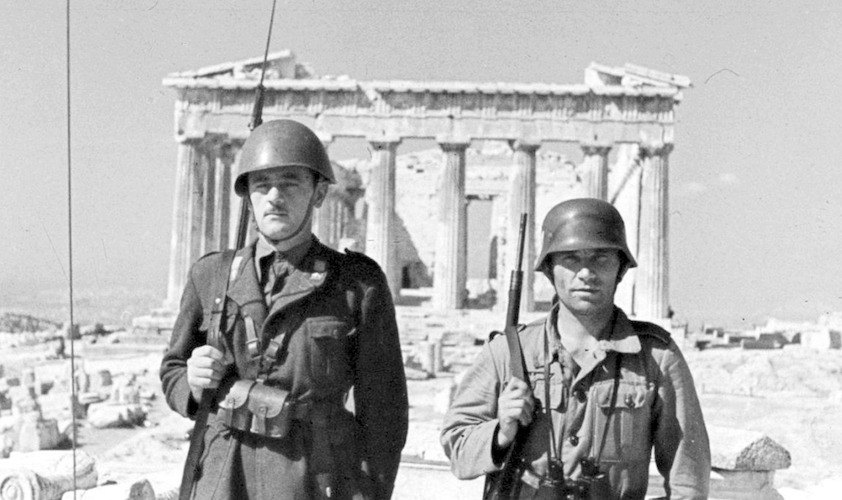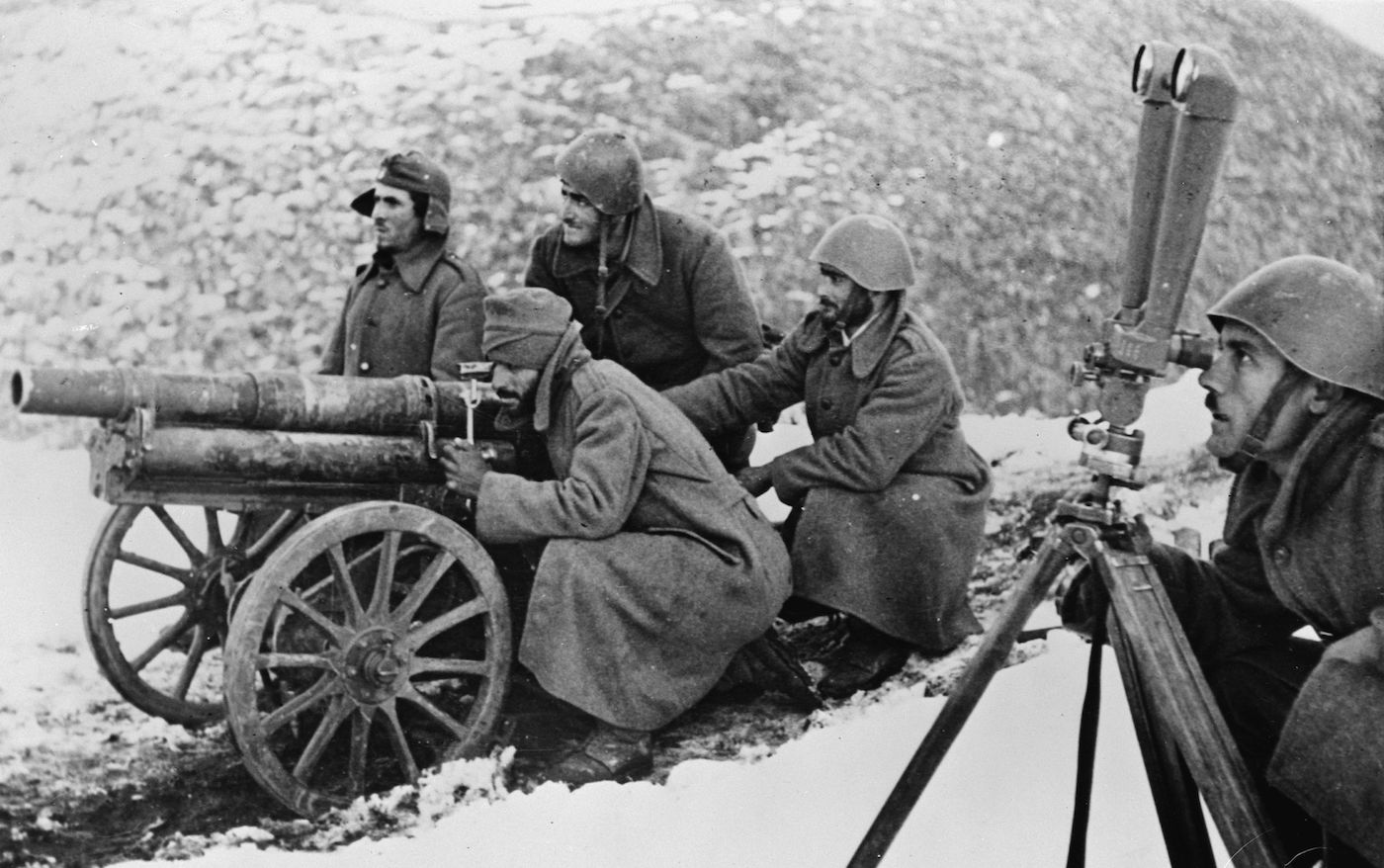
Greco-Italian War
Italian invasion of Greece
28 October 1940 - 23 April 1941
During the Greco-Italian war, the Kingdom of Italy attacked Greece with the purpose of annexing part of Greek territory. The Italians invaded Greece through Albania, which had been previously annexed by Italy, but the invasion turned out to be a disaster for the Italians. The Greeks counterattacked and pushed the Italian army back into Albania. After another failed Italian offensive in the spring, Adolf Hitler decided to come to his ally’s aid. Germany attacked northern Greece, and so the Greeks made a belated withdrawal from Albania, to avoid being cut off by the Germans.
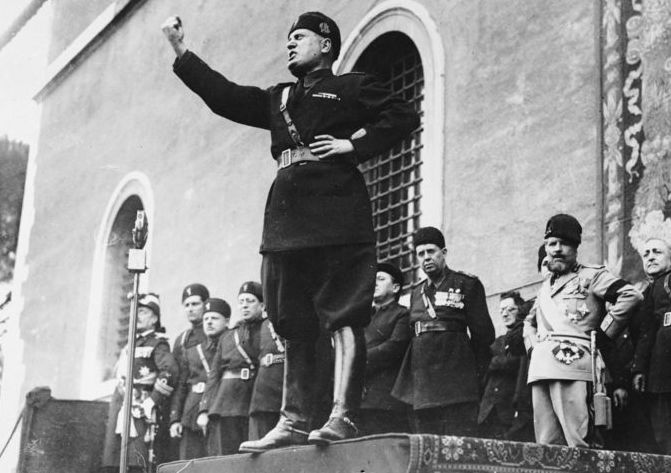
1 of 5
In a series of incredibly confused conferences, the Italian military leaders heard Mussolini explain his decision to attack Greece and argued over various unlikely schemes for implementing this project. Simultaneously it became clear that the army in North Africa was, as usual, not ready to move forward.
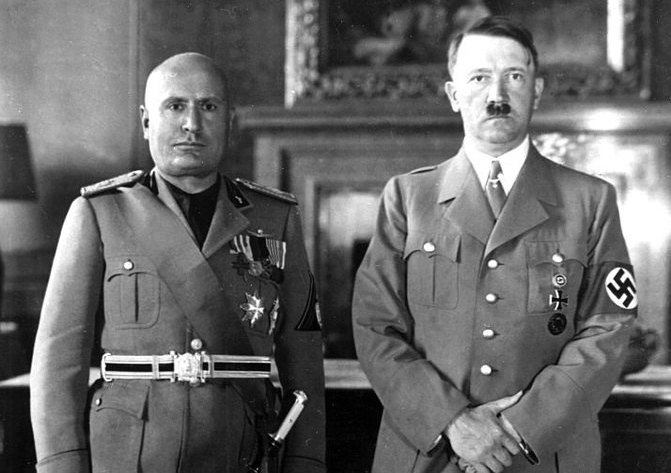
2 of 5
The Germans were not officially told about the invasion of Greece until the last moment. The contradictory indications they received ahead of time were in any case no basis for decisive action which might seriously offend their Italian ally, at a time when Hitler still hoped to work out some accommodation of Italy with France and Spain. Hitler could only put a good face on the situation created by the Italian attack. Anger came later.
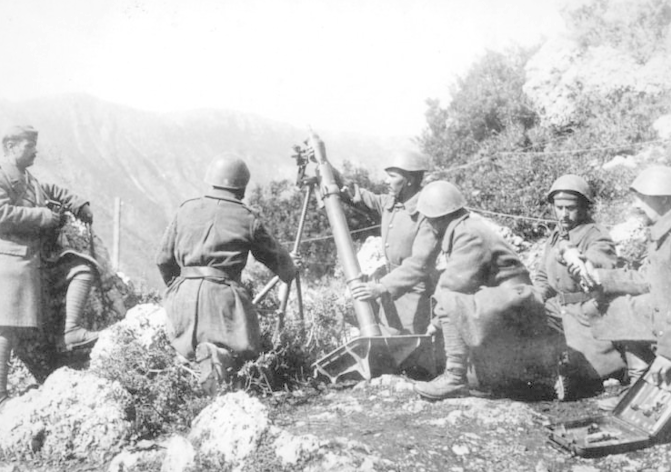
3 of 5
Bulgaria's refusal to join the attack on Greece — perhaps out of concern that Turkey might then join in — meant that the Greek leadership could move troops from Thrace to Macedonia to aid in stemming the Italians.
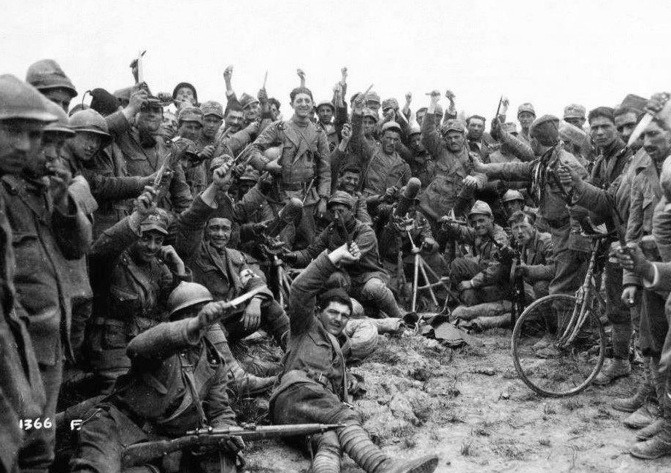
4 of 5
Anyone who has seen the terrain over which Italian troops fought in World War I will recognize that they are entirely capable of fighting bravely under the most difficult circumstances; but in an army where intelligence and rank were distributed in inverse proportions, nothing but utter disaster could be expected. Twice the top commander on the Italian side was relieved, but all to no avail. Two decades of Fascist rule had left Italy with an army that was much more poorly led, equipped, and trained than that of 1915.
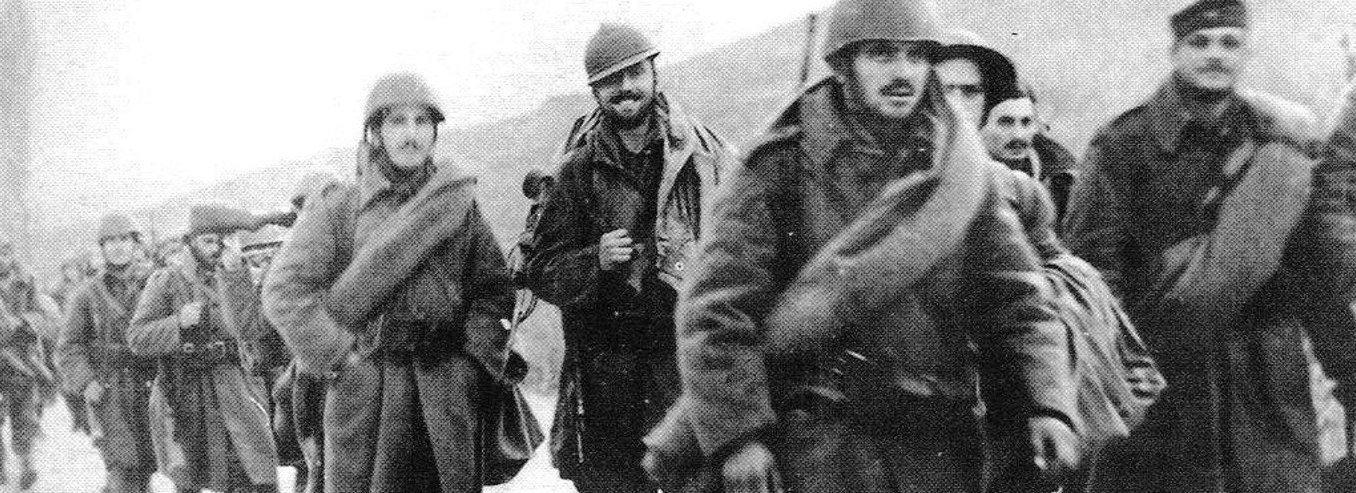
5 of 5
The Italian troops in Albania, totally unsuccessful in their efforts at resuming the offensive, had to await the results of a German attack on Greece from an entirely different direction.
The Italians foresaw a two-stage campaign. First, their forces in Albania (a country that Mussolini had seized in April 1939) would drive south and occupy northern Greece, as their navy seized the most important Aegean islands. Then the troops would continue the march south to Athens for a final assault. Heavy bombing to terrorize Greek civilians would help precipitate the fall of the regime.
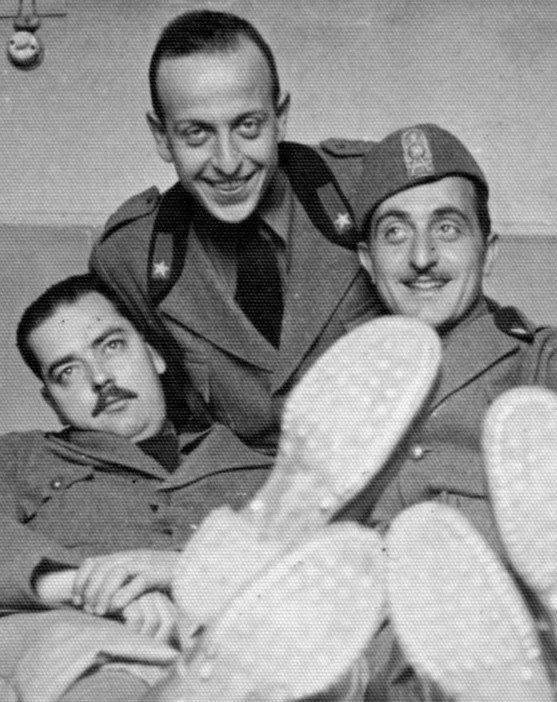
1 of 5
Italians began planning for an attack on Greece. But they did so without halting the demobilization of their army and had already reduced ground forces from 1,000,000 to 600,000 men. The reasons for the demobilization had been economic as well as political: the harvest and industry needed manpower, and the public needed some reassurance that events were returning to normal. Incredibly, the army executed the demobilization by age group, so that every division in Italy lost a substantial portion of its manpower. Italian forces were undermanned and unprepared for war, though their generals were all too willing.
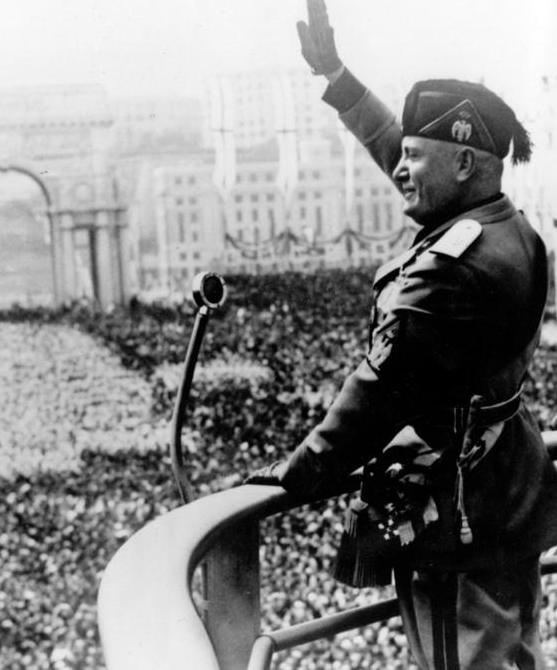
2 of 5
Italian plans revealed an unhealthy contempt for the Greeks’ ability to defend themselves, along with a disregard for the most obvious operational problems. To begin with, Italian forces in Albania could claim a bare one-to-one ratio with Greek defenders. Moreover, Albania had only enough logistic infrastructure to support forces already in that country. Once the attack on Greece began, Italy would have no capacity for sending new formations into the theater or for a rapid buildup, given the demands for ammunition, food, and fuel from the battlefront.
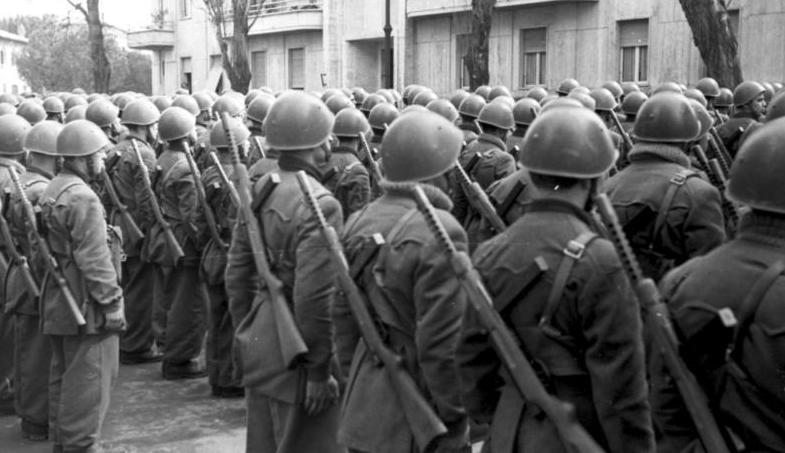
3 of 5
The Italians also assumed that, given Bulgarian-Greek hostility, the mere existence of the Bulgarian Army would freeze much of the Greek Army in Thrace. This assumption turned out to be incorrect.
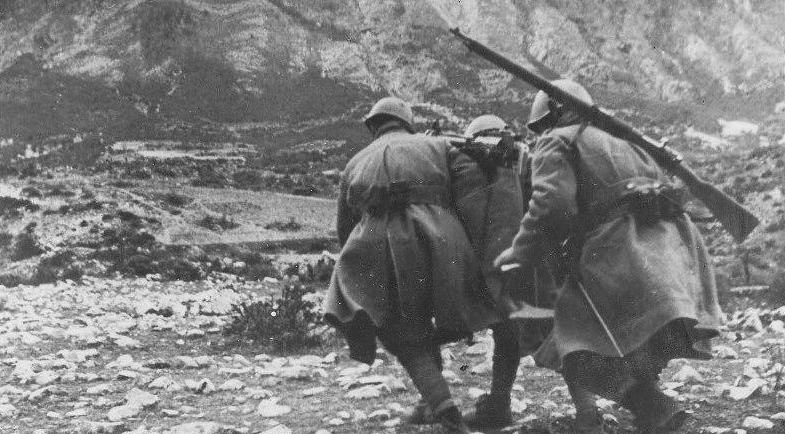
4 of 5
Mussolini believed that the small and poorly equipped Greek army would not cause him undue problems. His habitual vanity blinded him to the failings of his own army and the residual hardiness of his opponents.
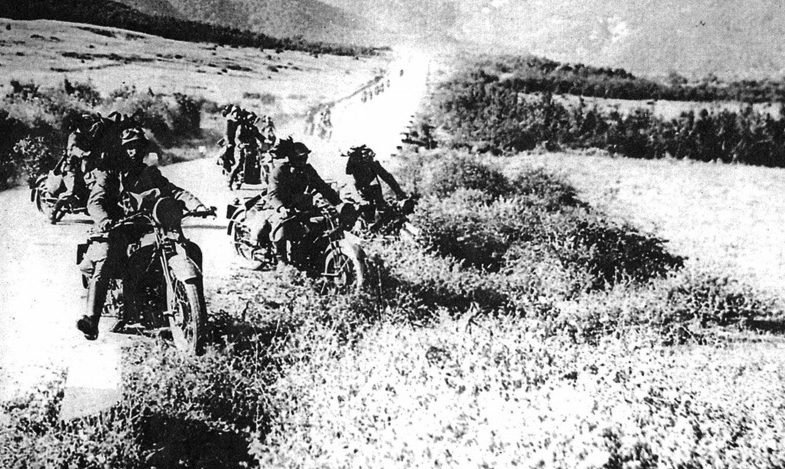
5 of 5
Under the command of General Visconti Prasca, the Italian assault would be conducted by four divisions in the Epirus region in the west, with a further two divisions protecting the main attack. Given the ambitious nature of the plan, it was a surprisingly small force, possibly reflecting the overconfidence of the Italian high command.
- Gerhard L. Weinberg, A World at Arms A Global History of World War Two, Cambridge University Press, Cambridge, 1994
- Andrew Roberts, The Storm of War A New History of the Second World War, Penguin Books, London, 2009
- Williamson Murray, Allan R. Millett, A War To Be Won Fighting the Second World War, Belknap Press, Cambridge, Massachusetts, 2000
- Adrian Gilbert, Germany's Lightning War:From the invasion of Poland to El Alamein, 1939-1943, MBI Publishing Company, Osceola, WI (USA), 2000






